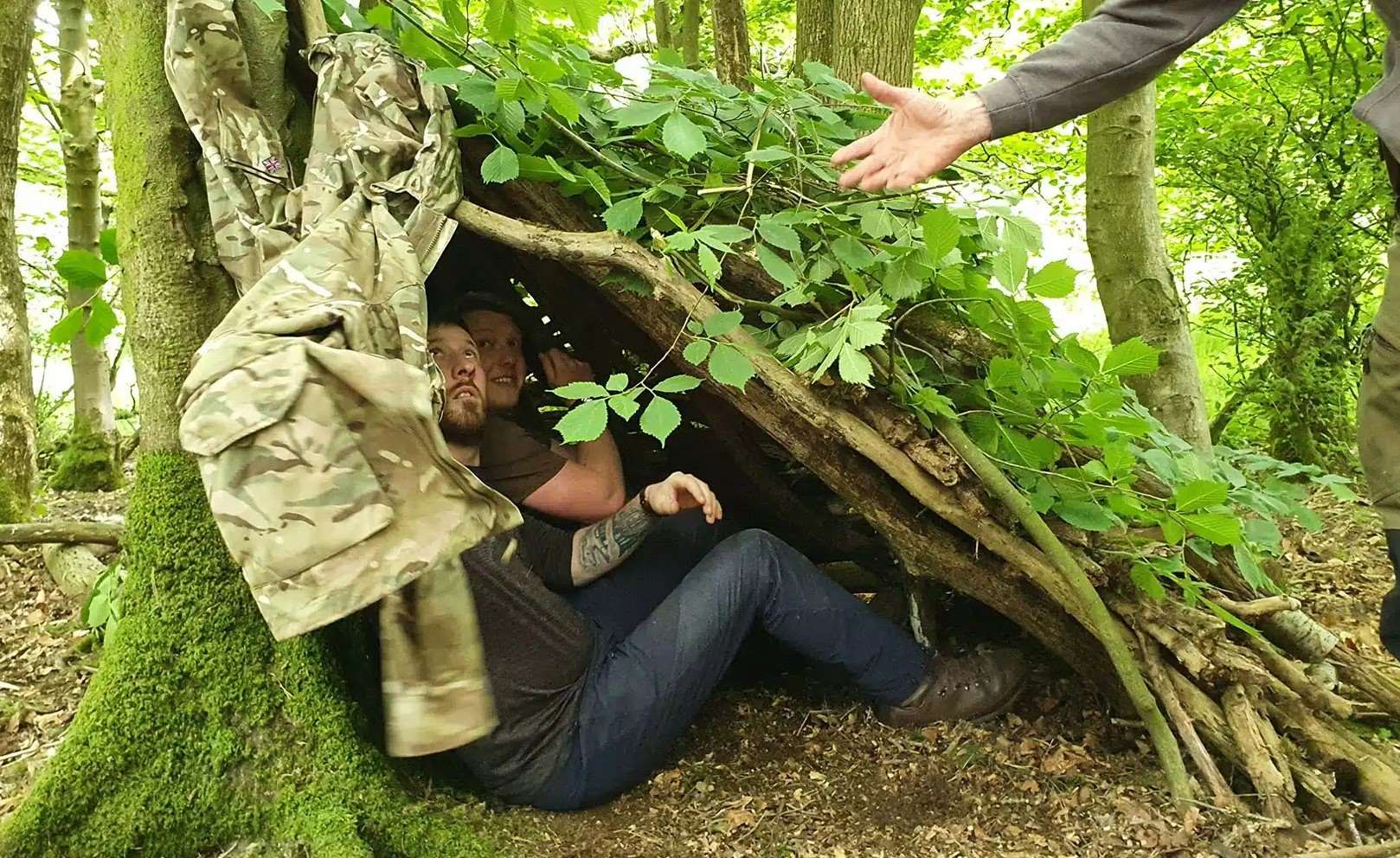
Bushcraft is a fascinating and essential skill set that allows individuals to thrive in the wilderness, relying only on their knowledge of nature and minimal tools. It is a way of living in harmony with the environment, utilizing ancient techniques to build shelters, find food, and navigate through the wild. The art of bushcraft has captured the imaginations of adventure enthusiasts and survivalists alike, offering an opportunity to disconnect from the modern world and reconnect with nature.
In this article, we will delve into the enigmatic world of bushcraft and explore 15 intriguing facts about this captivating lifestyle. From its origins to the essential skills required, we will uncover the secrets behind surviving and thriving in the great outdoors. So, grab your backpack, put on your sturdy boots, and get ready to embark on a journey through the hidden wonders of bushcraft!
Key Takeaways:
- Bushcraft is the art of surviving and thriving in the wilderness, involving skills like fire-making, shelter-building, and foraging for food. It fosters self-reliance, respect for nature, and a deeper connection to the environment.
- Bushcraft skills, such as problem-solving and adaptability, are not only useful in the wilderness but also in everyday life. Engaging in bushcraft can also provide therapeutic effects and opportunities for self-discovery.
Bushcraft is the art of wilderness survival.
Bushcraft is a term that encompasses a wide range of skills and techniques used to survive and thrive in the wilderness. From building shelters to sourcing food and water, bushcraft requires a deep understanding of nature and the ability to adapt to various environments.
It has deep roots in indigenous cultures around the world.
Bushcraft techniques have been practiced for centuries by indigenous cultures around the world. From the Native Americans to the Aboriginal people of Australia, the knowledge and skills of bushcraft have been passed down through generations.
One of the key principles of bushcraft is self-reliance.
In bushcraft, self-reliance is highly emphasized. Practitioners aim to be self-sufficient in the wilderness, relying on their knowledge and skills to meet their basic needs.
Fire is a crucial element in bushcraft.
The ability to start and maintain a fire is of utmost importance in bushcraft. Fire provides warmth, protection from wildlife, a means of cooking food, and the ability to signal for help if needed.
Shelter building is an essential skill in bushcraft.
Bushcraft enthusiasts learn various methods of constructing shelters using natural materials such as branches, leaves, and bark. These shelters provide protection from the elements and support survival in the wilderness.
Navigation skills are crucial in bushcraft.
Being able to navigate without the use of modern technology is a key aspect of bushcraft. Practitioners rely on skills such as map reading, using a compass, and natural landmarks to find their way in the wilderness.
Foraging for wild food is a fundamental part of bushcraft.
Bushcraft involves the knowledge and ability to identify and gather edible wild plants, fruits, nuts, and mushrooms. This skill not only provides sustenance but also connects practitioners to the natural world around them.
Bushcraft teaches respect for the environment.
Central to the practice of bushcraft is a deep respect for nature and the environment. Practitioners learn to minimize their impact on the wilderness and leave no trace behind.
Bushcraft encourages creativity and improvisation.
When faced with challenges in the wilderness, bushcraft experts are known for their ability to think outside the box and come up with innovative solutions. Improvisation and creativity are key skills in adapting to different situations.
Bushcraft fosters a deeper connection to nature.
By immersing themselves in the natural world and relying on nature for survival, bushcraft enthusiasts develop a profound connection to the earth, its rhythms, and its creatures.
Water sourcing and purification are essential in bushcraft.
Knowing how to locate, collect, and purify water in the wild is vital for survival in bushcraft. Techniques such as building water filters and using natural resources to extract water are crucial skills.
Knife skills are a cornerstone of bushcraft.
A good bushcraft knife is considered a vital tool for survival. Mastery of knife skills allows practitioners to build shelters, process wood for fire, and create tools and utensils.
Animal tracking is an important skill in bushcraft.
Bushcraft enthusiasts learn to read signs and tracks left by animals in order to gain insights into their behaviors, locate potential food sources, and increase their awareness of the wilderness.
Bushcraft can be a form of therapy and self-discovery.
For many individuals, engaging in bushcraft activities can have therapeutic effects. The solitude and connection with nature provide an opportunity for introspection and personal growth.
Bushcraft skills are transferable to everyday life.
The knowledge and skills gained from bushcraft can be applied in various situations, even outside of wilderness environments. Problem-solving, adaptability, and self-reliance are valuable traits that can benefit individuals in their everyday lives.
Conclusion
In conclusion, bushcraft is a fascinating and multifaceted skill that combines wilderness survival, outdoor living, and self-reliance. From learning how to build a shelter to starting a fire without matches, mastering bushcraft techniques can empower individuals to thrive in nature’s challenges.
By gaining knowledge of edible plants, animal tracking, and navigation methods, bushcraft enthusiasts can develop a deep connection with the natural world around them. Additionally, the practice of bushcraft promotes mindfulness, resilience, and respect for the environment.
Whether you are an outdoor enthusiast, a nature lover, or simply someone seeking to enhance your survival skills, diving into the world of bushcraft can be a transformative journey. So, grab your backpack, put on your sturdy boots, and embark on an adventure that will not only teach you valuable skills but also ignite a lifelong love for the great outdoors.
FAQs
1. What is bushcraft?
Bushcraft is the skill set and knowledge of living and thriving in the wilderness, using traditional methods and minimal equipment. It involves principles of survival, such as shelter-building, fire-making, finding food and water sources, and navigating through nature.
2. Who can learn bushcraft?
Anyone can learn bushcraft! Whether you are an outdoor enthusiast, a hiker, a camper, or someone who simply wants to be more self-reliant in nature, bushcraft skills are valuable for all. It’s a great way to connect with nature and learn to survive and thrive in the wilderness.
3. What are some essential bushcraft skills?
There are various essential bushcraft skills, including fire-making, shelter-building, foraging for edible plants, water purification, animal tracking, and navigation. These skills equip you with the tools needed to survive and live comfortably in the wilderness.
4. Is bushcraft dangerous?
While bushcraft involves being in the wilderness and facing potential challenges, it can be done safely with the right knowledge and preparation. Learning from experienced instructors, practicing proper safety measures, and respecting the environment are key to minimizing risks and enjoying a safe bushcraft experience.
5. Can bushcraft be practiced in urban areas?
While bushcraft is typically associated with wilderness settings, some aspects of it can be applied in urban environments. For example, learning to start a fire without matches or using natural materials for shelter can be valuable skills in emergency situations, even in urban settings.
Inspired by the enigmatic world of bushcraft? Sharpen your skills with our guide to the best bushcraft knives, perfect for carving, whittling, and crafting in the wild. Survival situations call for reliable tools, so check out our top picks for survival knives that will keep you prepared for anything nature throws your way. Don't forget about the convenience and versatility of a quality boot knife – our article on the best boot knives will help you choose the right one for your outdoor adventures.
Was this page helpful?
Our commitment to delivering trustworthy and engaging content is at the heart of what we do. Each fact on our site is contributed by real users like you, bringing a wealth of diverse insights and information. To ensure the highest standards of accuracy and reliability, our dedicated editors meticulously review each submission. This process guarantees that the facts we share are not only fascinating but also credible. Trust in our commitment to quality and authenticity as you explore and learn with us.


